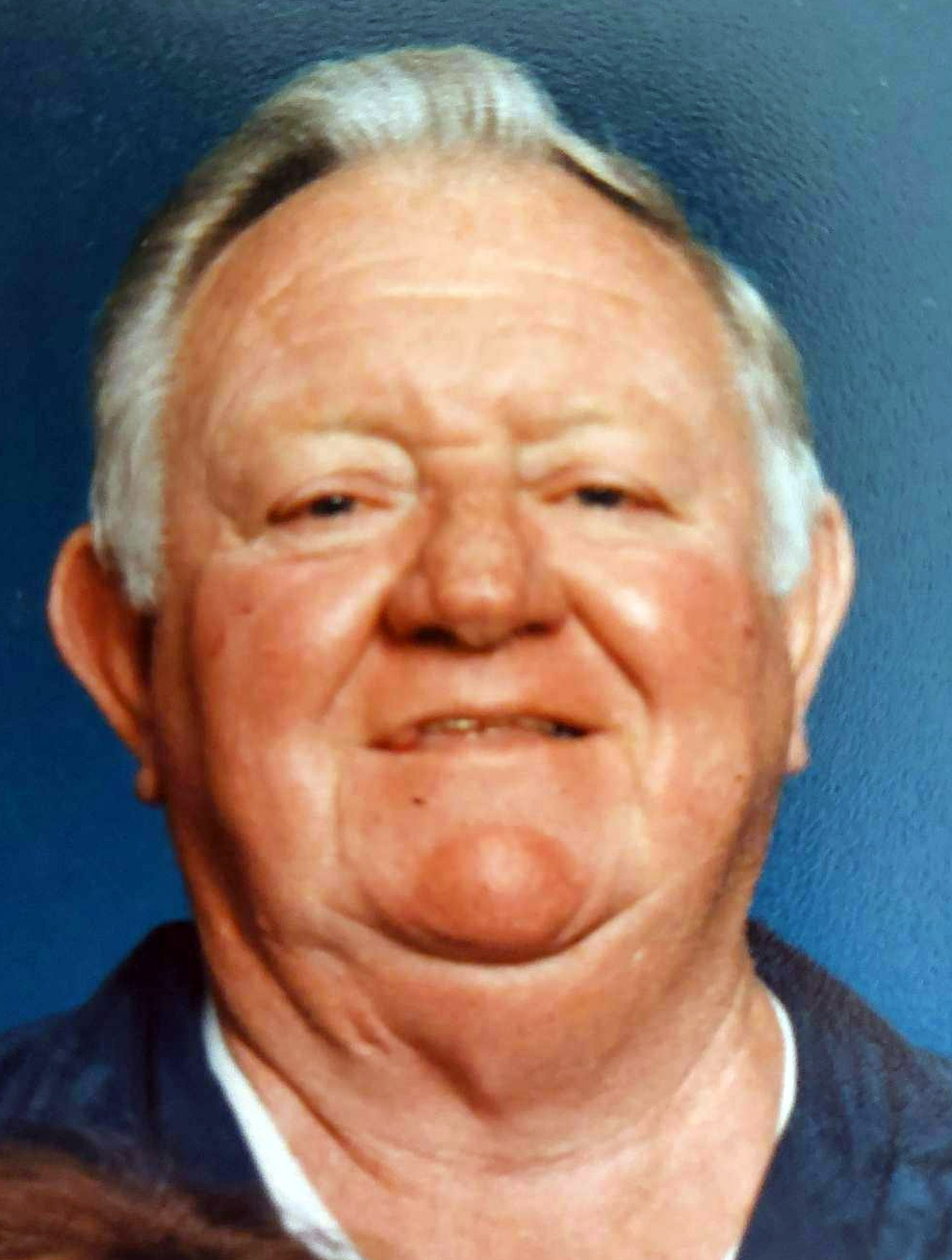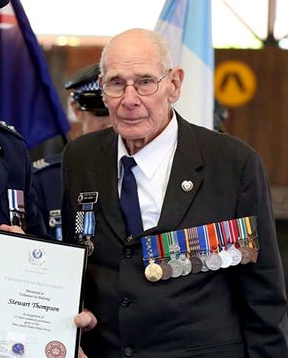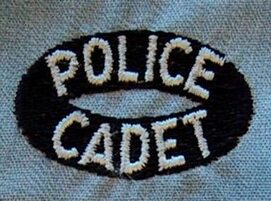Retirement of Sergeant Terence O’Rourke – 1924
Terence Joseph O’ROURKE
New South Wales Police Force
Regd. # ?
Sergeant ?
Stations: Mounted Police, Newcastle District for several years.
Singleton – 7 years
Scone – 1896 ( four months duty here )
Denman – ?
Wyong – 1909 – 1911
Kempsey – 5.5 years
Wyong – ? – 1920
Scone ( Sergeant ) 1 December 1920 – Retirement date ?
Awards: ?
Service: From August 1890 to ?
Born: ?
Died: 18 January 1938, late of Artarmon,
formerly of Denman.
Funeral date: ?
Funeral location: ?
Buried: Macquarie Park Cemetery,
R.C., row G4, plot 0029 along with other family members
[divider_dotted]
[alert_yellow]Terrence is NOT mentioned on the Police Wall of Remembrance[/alert_yellow]
[divider_dotted]
Retirement of Sergeant Terrence O’Rourke.
EPISODES OF A LENGTHY SERVICE.
The Scone Advocate ( NSW ) Tuesday 25 November 1924 page 2 of 4
During the reign of Queen Victoria and several years before the birth of the Prince of Wales, there arrived in Australia fresh from Erin’s Isle, a young man by the name of Terence O’Rourke. Having received his education at the Royal University, Dublin ( now known as the National University ), at which he obtained a first-class Exhibition in French, he entered Queen’s College, Galway, for the purpose of studying medicine, but the dissection room proved to be too great an ordeal for the nerves of a man who appreciated the healthy freedom of the open air, and he gave up the opportunity of becoming a guardian of the health of Her Majesty’s subjects for what proved to be the no less useful career of a keeper of the peace in the antipodes. The late Sir Thomas Moffat, L.L.D., was then president of the college, and the recommendation that the student received from that source was, to say the least, sufficiently inspiring to gratify the vanity and increase the energy of any ordinary young man. In short, Sir Thomas looked for great things from his erstwhile pupil. Only a few years previously, Mr. T. P. O’Connor, member for the Scotland Division of Liverpool, and the father of the House of Commons ‘ at the present time, graduated at the same college.
Shortly after his arrival in Australia, O’Rourke seized the opportunity to go to Noraville, near Nora Head, to become tutor of the three sons of Mr. Edmund Hammond Hargreaves, B.A. ( Sydney ), a member of the Church of England Synod of Newcastle, and a son of the first great gold discoverer of Australia. The impression created by close contact with the family was a pleasing introduction to Australian life, for the new arrival found in his first employer a typical Australian and a broad-minded gentleman of kindly disposition. The intimacy then created with the sons is evidenced to-day in the friendship of Mr. Dudley Hargreaves, who is now resident at Noraville. Tasting not a little of the outdoor life at Noraville, young O’Rourke felt the need for more, and in August, 1890, he joined the mounted police and served in the Newcastle district for several years, during which time he attained some reputation during strikes. From Newcastle he went to Singleton, where he was stationed for seven years. His success in dealing with cattle stealers, not to mention sly-grog cases, earned for him the commendation of various Judges, and also brought him under the notice of the President of the Stock Stealing Prevention Association, Singleton, Mr. R. H. Dangar, who in his appeal to the Inspector General to prevent the constable’s transfer from Singleton, said that it would mean a great loss to the cattle owners.
SOLD IN SCONE.
It is interesting to note that while at Singleton Constable O’Rourke traced a man who had stolen a horse and buggy from Singleton to Scone, where the turnout had been sold through Messrs. Corbett and Simpson, auctioneers. The criminal escaped to Victoria, and it was several months before the trail led to Pentridge Gaol, where the culprit was found under going a sentence for larceny. A few days before Xmas, 1902, the prisoner was identified and brought by Constable O’Rourke to Singleton, where it was shown that the offender had served sentences in the various States of Australia aggregating 12 ½ years. ‘ At the Singleton Quarter Sessions in March, 1903, a further sentence of three years was imposed. At his own request, Constable O’Rourke was transferred from Singleton to Denman. Here, within a week, he received word that cattle had been stolen from the Baerami Estate, then the property of the Bank of N.S. Wales. In company with Constable Moore, he followed the tracks of the cattle for several days through the mountainous country towards Capertree where, in a basin of the mountains, the stock were found and driven back, although the offenders escaped. His good work on this occasion was warmly commented upon by the stock-owner and the Inspector General. An exciting incident in connection with a Chinaman took place when stationed at Denman. It so happened that a serious burglary had occurred at Merriwa, and suspicion lighted upon a Chinaman who had just completed two ???s’ imprisonment. The cunning of the Celestial was evinced in that he smothered his footprints by wrapping his boots in strips of blanket.
GAGGED WITH REVOLVER.
The senior constable, in plain clothes, came upon the foreigner at Dandy Hollow and, having learned the practical value of ” getting in first, “ lost no time, after his preliminary question, in dealing out unexpected justice upon the surprised heathen, who suddenly found himself on the broad of his back with a smoking revolver, which the constable had first fired into the ground, inserted like a throat spray between his teeth, causing his victim to squeal for mercy. For his misdemeanours the Chinaman served a sentence of three years at Newcastle Gaol. The two years following 1909 were spent in Wyong, after which he was given six months leave, which he made good use of by visiting the scenes of his youth in the Green Isle. On his return, he was sent to Kempsey, where again he put up a big record in obstructing the movements of cattle stealers, and here he received the commendation of Judge Edmunds for his generalship in capturing within a few hours of the theft, a burglar who had escaped from the Royal Hotel with booty to the value of £200. In the struggle that followed the arrest, the criminal had got rid of the bulk of the stolen articles but, strange enough, as the constable was passing the Convent grounds some time afterwards, he noticed a child’s handkerchief lying on the ground and going in to pick it up, found most of the missing goods actually lying on and close by the article. After 5½ years at Kempsey, where it was remarked that his name would last as long as the Macleay, he was transferred at his own request to Wyong, where a cordial welcome awaited him. In 1920, he received a public farewell and the staunch friendships made there stand out pleasantly in his memory to-day.
WYONG’S APPRECIATION.
The ” Gosford Times ” said of him: ” There never had been stationed at Wyong an officer who was so fondly and regretfully farewelled by the people. The great success of Sergeant O’Rourke as a police officer lay in his tactful, firm, and gentlemanly demeanour, always doing the right thing in the right way and treating rich and poor alike. The pity is that Wyong is not graded high enough to retain the services of the sergeant. ” On December 1st, 1920, he took up his duties at Scone, where he had previously put in four months in 1896. To all who have had the pleasure of coming into contact with the kindly nature of Sergt. O’Rourke, it will not be surprising to learn that during the whole of his career he has never been assaulted or insulted. His humour — as alive today, despite his grey hairs — as it was in the nineties, proclaims a man of genuine heart and happy, youthful temperament; moreover, his conversation is that of a man who, despite his sanguinary battles with fate in the shape of desperate characters, has not lost heart in the ultimate good inherent in all, not excluding the outcast. To attract the best is better than to subjugate the worst, and it is very apparent that the aim of Sergeant O’Rourke was to construct rather than to destroy and, by so doing, he received the homage and trust of actually those whom it was his duty rigorously to defeat and bring to justice.
RETIRING TO DENMAN.
A well-earned holiday will preface his retirement to Denman, where in 1910, he acquired a very fine property from Mr. E. R. White, of Merton. The deal, one guesses, would not have been made, were it not that the retiring officer was held in high esteem by the seller, and it is only right to add that the sergeant himself speaks of the White family with a respect which finds expression in the words, ” They are men in the best sense of the word. I shall always be proud to salute the White family. ” All will join in the hope that Sergeant O’Rourke will find in his change of occupation all he requires, to make his future a happy and useful one, and that he will live long to enjoy what Robert Browning so ably defines as ” the last of life for which the first was made. ”
[divider]
*** Note ***
There was no mentioned of a wife or children in this article.
[divider]



